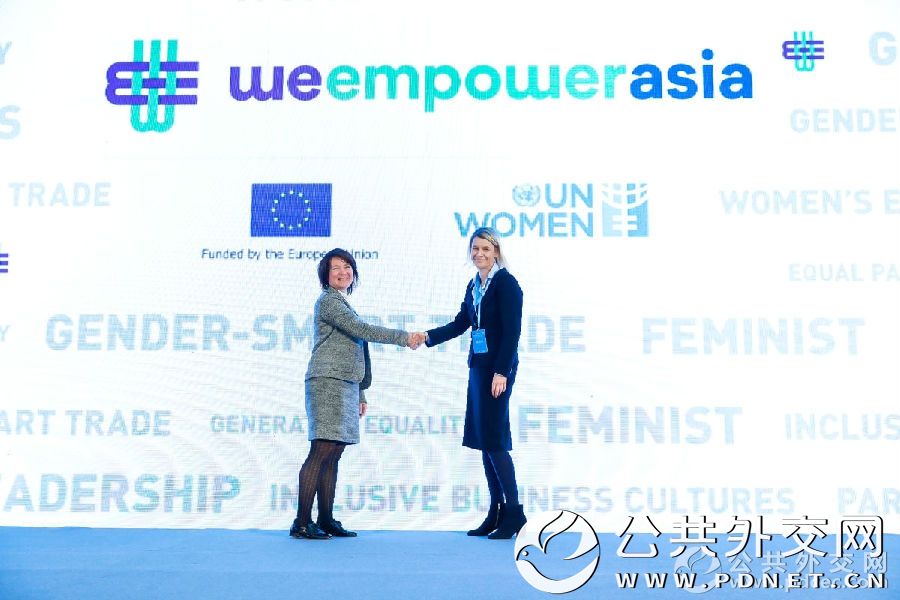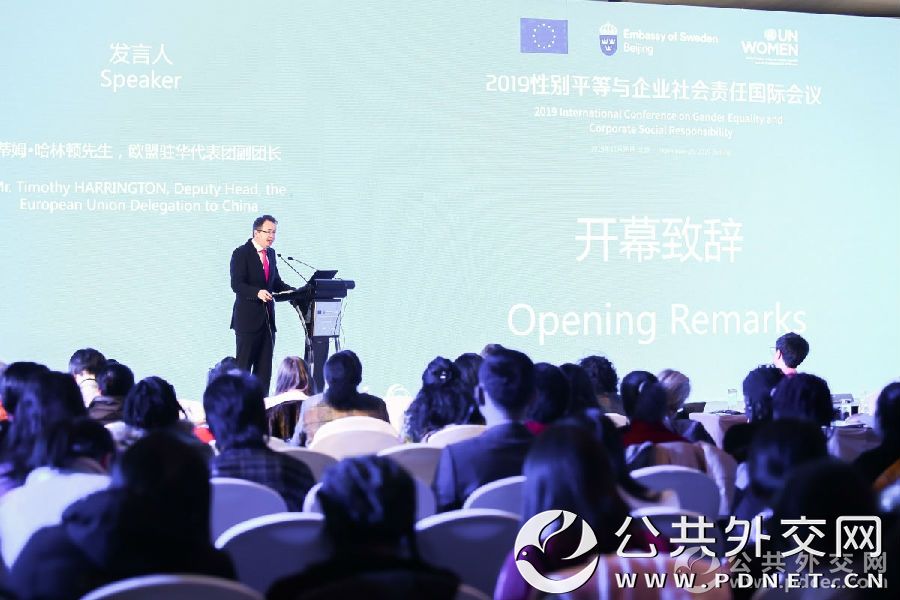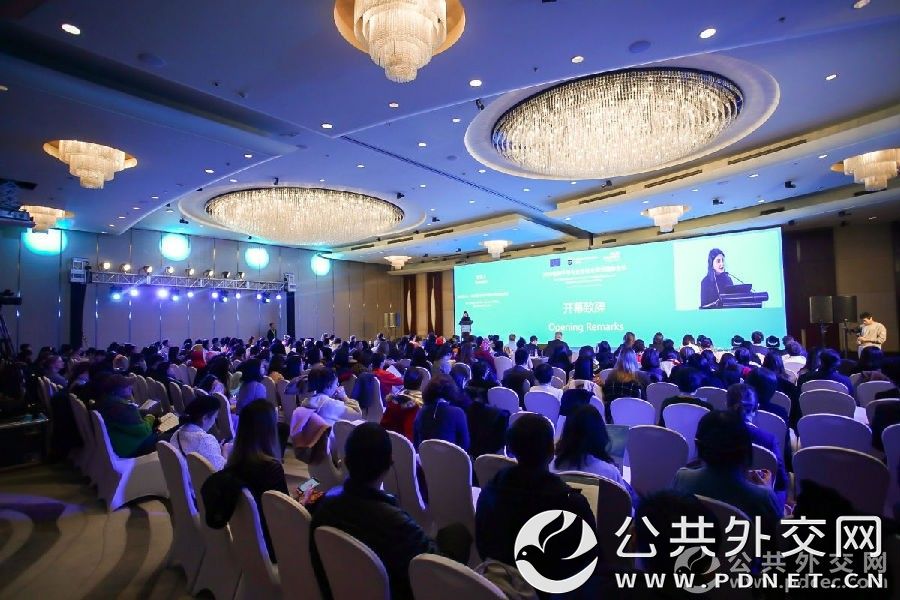
26 November 2019, Beijing – Organisedby UN Women China, in partnership with the Delegation of the European Union (EU)to China and the Embassy of Sweden in China, the 2019 InternationalConference on Gender Equality and Corporate Social Responsibility (CSR) concludedin Beijing today, noting progress made and actions required to address gender barriersin the private sector.Highlighting the critical role of CSRprogrammes in advancing equality in our workplaces and societies, delegatesexplored core challenges and opportunities of gender mainstreaming in companiesas well as innovative approaches to promote women’s leadership, decent work anddigital inclusion.
Attended by nearly 250 privatesector leaders, social entrepreneurs, civil society representatives along with EUand UN officials, the conference took place ahead of the Asia-Pacific RegionalReview of the 25th Anniversary of the Beijing Declaration and Platform forAction (Beijing+25 Review), to be held at the UN Conference Centre, Bangkokfrom 27-29 November 2019.

Despiterecent progress in advancing gender equality globally, the World Economic Forum estimates that the economic opportunity gender gap remainsthe dimension that will require the longest time to close completely — in 202years. Research from McKinsey Global Institute also shows that failure toachieve gender equality could cost China up to USD 2.6 trillion by 2025. Whilethe enormous opportunities presented by China’s rapid economic growth are clear,some women in the country still face various challenges and discrimination inthe workplace, marketplace and the community.
At the opening, Smriti Aryal, Headof UN Women China office called on all participants to take stock of progresson gender equality and renew their commitment to a fair, safe and equitableworkplace where all women can succeed. She mentioned, “UN Women supports astronger commitment for partnership and cooperation from the private sector tomake a tangible inter-generational impact for improving the lives of women andgirls”.
Ms. H.E. Helena Sångeland, Ambassador ofSweden to China, emphasized that Sweden’s overarchingprinciple for gender equality is that everyone, regardless of gender, has theright to work and support themselves, to balance career and family life, and tolive without the fear of abuse or violence. She underlined that the business caseof gender equality is very compelling, not only to business as such, but alsofor the whole society, and said, “there is a great untapped potential toharness corporate resources for gender equality, and social sustainability ingeneral.”
Mr. Tim Harrington, Deputy Head of theEuropean Union Delegation to China, reminded the audience about the EuropeanUnion’s longstanding commitment towards gender equality as well as CorporateSocial Responsibility promotion. This commitment is reflected, for example, bythe progress made in the appointment of women as middle and senior managers inthe European Commission as well as by the European Commission's trade policy's"commitment to identifyopportunities for responsible supply chain partnerships", as stated byMr. Harrington.
Ms. Zhao Hongju, Vice Director-Generalof the Liaison Department, All-China Women’s Federation, mentioned: “Chinesewomen’s cause is facing unprecedented historical opportunities, and the vastnumber of Chinese women will certainly be able to make great contributions inthis great process”.

The conference was also the occasionfor the EU and UN Women to kick off the WeEmpowerAsia programme in China. Theregional programme aims to increase the number of women who lead, participate inand have to access business opportunities and leadership in the private sectorto advance inclusive and sustainable growth in Asia, while contributing to moregender-equal trade opportunities between Asia and Europe.
For private sector companies, afirst step to realising the commitment to responsible business conduct can bedone through the signature of the Women's Empowerment Principles (WEPs), a setof guidelines on how to empower women in the workplace, marketplace andcommunity. Reiterating their commitment to these principles, Ms. Guan Yue,HeForShe Advocate and CEO of Tongyue Mingxin Cultural Media Co. Ltd. shared herWEPs journey as a representative of the WEPs signatory at the conference. Todate, 41 companies in China have pledged action to advance the WEPs, and morethan 2,700 companies have done so globally. An international network oflike-minded companies, the WEPs platform connects businesses of all sizesacross multiple industries, ranging from multinational corporations such asAlcatel-Lucent, IKEA, Microsoft and Unilever, to enterprises at the local levelsuch as Zhilian Zhaopin, among many others—as signatories.

Africa has become a magnet for medium and high-end consumer business investment. This can be traced quite rightly to the ever-growing population in large urban cities across the continent. Africa's population has the entire world's population rate with a twenty per cent projection over the next five years.

Chinese investments in Sri Lanka have contributed to economic growth in Sri Lanka in terms of creation thousands of jobs for locals,infrastructure development and modification,on the contrary to allegations made in some quarters otherwise,a spokesman from the Chinese Chamber of Commerce in Sri Lanka(CCCSL)in Sri Lanka said.